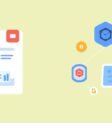
Artificial intelligence (AI) is transforming the way organizations operate by enabling professionals and businesses to delegate tasks to AI with unprecedented efficiency. As AI capabilities expand, learning how and what to entrust to automation becomes crucial for staying competitive and innovative. In this article, we’ll explore the principles, best practices, and real-world applications of AI task delegation to help you maximize productivity while focusing on work that truly requires your unique human touch.
The Importance of Delegating Tasks to AI
In 2024, the ability to delegate tasks to AI has transitioned from a technological novelty to a foundational aspect of modern workflows. As organizations grapple with increasing data, complexity, and speed of business, AI-powered automation provides a solution by streamlining repetitive processes, reducing human error, and freeing staff for higher-value work. Companies that embrace AI delegation report notable productivity gains, enhanced response times, and a distinct competitive advantage. Those who master this practice are poised not just to survive, but thrive in today’s evolving landscape. The gap between early adopters and laggards continues to widen, making AI literacy and strategic delegation an essential competency for ongoing relevance and success.
How to Decide What Tasks to Delegate to AI
Delegating the right work to AI starts with understanding the distinction between tasks suited for automation and those reserved for human skills. Prioritize activities that are repetitive, time-consuming, and governed by clear rules. Examples include data entry, appointment scheduling, routine reporting, and handling basic customer inquiries. AI excels at delivering consistency and speed for these functions, along with tasks involving data aggregation, document processing, or creating initial content drafts. On the other hand, any function requiring deep emotional intelligence, strategic oversight, or complex interpersonal interactions—such as conflict resolution or leadership—should remain under human oversight.
To determine eligibility for AI delegation, consider:
- Complexity: Is the work rule-based with predictable outcomes?
- Volume: Is the process frequent enough to warrant investment in automation?
- Impact: Will automation enable a stronger focus on creative or strategic activities?
Regular audits of your workflow can help identify tasks draining valuable hours without leveraging unique human capabilities. By being selective, you ensure AI amplifies your team’s effectiveness instead of replacing the crucial aspects of your work. For more, see our guide to automating daily admin tasks using AI.
Choosing the Right AI Solutions for Delegating Tasks
The market offers a diverse array of AI tools engineered for every level of complexity and integration, making it easier than ever to delegate tasks to AI. Some popular platforms include:
- Zapier and Make (Integromat): Designed for workflow automation, these tools connect multiple apps and automate tasks like email follow-ups and bulk data entry. For an in-depth look, check our article on using Zapier with AI agents.
- ChatGPT and Google Gemini: Powerful for content generation, brainstorming, and research. Companies use these AI assistants for rapid response chatbots and content drafts.
- UiPath and Automation Anywhere: Specialize in robotic process automation (RPA), ideal for handling structured tasks in finance, HR, and operations (e.g., invoice processing).
- Notion AI, Microsoft Copilot, and Google Duet AI: Embedded within productivity platforms, they assist with drafting emails, summarizing documents, and organizing daily operations.
When selecting a solution, keep these tips in mind:
- Define Requirements: Clarify which tasks you plan to delegate and the complexity involved.
- Ensure Integration: Choose tools that fit seamlessly with your current platforms and practices.
- Scalability & Security: Opt for tools that can scale with your needs and offer robust data protection.
- User-Friendliness: Select products with intuitive interfaces and good support to ease adoption.
Matching tools to task requirements ensures that automation strengthens your workflow and delivers tangible benefits.
Step-by-Step Guide: How to Delegate Tasks to AI Effectively
Effective AI task delegation involves a structured, iterative approach to ensure reliability and measurable results. Follow these steps for optimal success:
- Identify Repetitive and Structured Tasks: Review workflows to highlight tasks—like data entry, scheduling, and report generation—that would benefit most from automation.
- Select Suitable AI Tools: Investigate platforms tailored for your target tasks, focusing on ease of use and integration with your existing systems.
- Define Inputs, Outputs, and Rules: Clearly articulate all data inputs, desired outputs, and procedural rules for the AI, setting boundaries on autonomous actions.
- Integrate with Current Systems: Use APIs, plugins, or native integrations to ensure seamless operation within your workflows. Test thoroughly.
- Train and Test: Provide sample materials and test runs, involving staff for hands-on feedback and adjustments.
- Monitor and Measure Performance: Track metrics such as speed, quality, and error rates, setting up alerts for exceptions.
- Ongoing Review and Optimization: Continuously update rules, training data, and integrations, fostering a culture of continuous improvement.
Sticking to this step-by-step approach will help you avoid frustration, maximize ROI, and keep your team engaged throughout the transition.
For a practical example of workflow automation, review how TheAgentBot automates workflows.
Common Mistakes When Delegating to AI—and How to Avoid Them
Delegating work to AI isn’t always seamless. The most frequent pitfalls include:
- Vague Instructions: AI needs clear prompts and constraints to deliver valuable output. Unclear guidance can result in wasted effort or off-target results.
- Overestimating AI’s Abilities: Expecting advanced reasoning or specialist insight from generic prompts often ends in disappointment. Match your tasks to the platform’s true strengths, such as summarization or basic content generation.
- Skipping Human Review: Relying exclusively on AI outputs without oversight can cause embarrassing mistakes or brand misalignment.
- Ignoring Ethics: Privacy, bias, and fairness must always be top of mind to avoid reputational or legal issues.
- Neglecting Feedback: Improvement is incremental; refine prompts and rules based on regular reviews of AI results.
By addressing these factors head-on, you’ll ensure AI works as a valuable supplement—not a liability—in your workflow. To optimize your content and prompts, consider our tips in best GPT prompts for content marketing automation.
Real-World Case Studies: Businesses that Delegate Tasks to AI
Organizations across sectors have documented dramatic results from AI-driven task delegation. For example, a global logistics provider deployed AI scheduling for routes, slashing planning time by 60% and significantly reducing operational costs. In the financial sector, a mid-sized accounting firm implemented AI for document processing, halving manual data entry errors and accelerating month-end closings.
Entrepreneurs and freelancers also benefit. A digital marketing consultant leveraged AI writing tools to generate drafts and content calendars, resulting in a 40% productivity boost. The unifying elements in each case: Clearly defined problems, incremental integration, comprehensive training, and regular performance reviews. These stories show that successful AI delegation is grounded in collaboration—with humans focusing on oversight, strategy, and creativity, and machines tackling bulk and routine tasks.
For further reading, see our article on turning your blog into a content machine with AI automation.
The Future of AI-Powered Task Delegation
AI is rapidly advancing, and the landscape for delegating tasks to AI is evolving just as quickly. Generative AI now enables machines to handle creative outputs such as reports, design assets, and computer code. The emergence of autonomous agents—capable of independently managing multi-step workflows—means organizations can automate not just individual tasks, but entire processes.
Simultaneously, improvements in natural language interfaces are allowing non-technical users to effortlessly delegate complex requests simply by conversing with AI systems. With increasing focus on privacy and ethics, new platforms are letting organizations exercise more granular control over how AI acts and processes data. Staying current with compliance standards is essential, especially as regulatory environments continue to adapt.
The skills required to manage and collaborate with AI are changing. Upskilling in AI literacy, transparency, and adaptable workflows will help businesses stay at the forefront. For those just beginning, partnering with specialized firms, such as an AI automation agency, can accelerate the learning curve and ensure best practice implementation. According to a recent Harvard Business Review article, combining disciplined process improvement with responsible delegation to AI is key to long-term organizational success.
Conclusion
Learning to delegate tasks to AI is now a strategic imperative. By focusing on the right processes, choosing the best-fit tools, and embedding best practices, you enable your team to unlock higher levels of creativity, productivity, and satisfaction. Whether you’re a business leader, freelancer, or entrepreneur, start by experimenting with small, rule-based automations and scale as you learn. Remember that the most effective AI implementations work in partnership with human intelligence—enhancing rather than replacing it.






